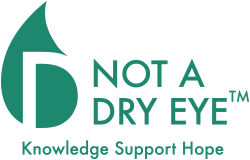If you are suicidal and need emergency help, call 911 immediately or 1-800-273-8255 if in the United States.
If you are in another country, find a 24/7 hotline at the International Association for Suicide Prevention – Crisis Centers.
- US National Suicide Prevention hotline: 1-800-273-TALK (8255)
- Website: suicidepreventionlifeline.org
- International Association for Suicide Prevention – Crisis Centers
Although there have been no studies to date on the incidence of suicidal ideation among Dry Eye sufferers, anecdotal evidence suggests that the incidence of suicidal thoughts is significant. (We know of many individuals with Dry Eye who have thought about suicide).
There are several reasons why Dry eye sufferers may have suicidal thoughts.
First, some people with chronic eye pain and discomfort, who have not been properly diagnosed and treated, may think that they will never find relief, and that the only solution is suicide. They may have already thought about ways to take out their eyes, but may not be brave enough to disfigure themselves. Consequently, suicide seems to be the only option left. These individuals have lost all hope, and may also have lost faith in the medical profession. Having already seen many doctors, they may believe that no doctor — anywhere — will ever be able to help them.
Secondly, some Dry Eye sufferers, those who have had their quality of life severely impacted by Dry Eye, may become depressed, and may be driven to thoughts of suicide. A 2015 study in South Korea linked suicidal thoughts with vision loss, noting that “People with visual impairment often suffer substantial psychosocial consequences.”
If your eye pain and discomfort is causing you to have thoughts of suicide, you should tell someone immediately: a trusted family member or friend; a spiritual advisor; a suicide prevention hotline; your primary care physician; or your eye doctor.
- US National Suicide Prevention hotline: 1-800-273-TALK (8255)
- Website: suicidepreventionlifeline.org
- International Association for Suicide Prevention – Crisis Centers

